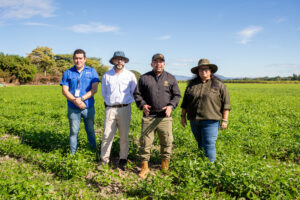
Courtesy
The Normas Internacionales de Información Financiera (NIIFF), mark an era of communication within the financial market, which are here to stay and there is no turning back in their application. The standards are designed for companies to tell their sustainability story in a solid way, which will represent a great opportunity, with a fairer and more prosperous future in the transition to the construction of a more sustainable global economy.
In addition, this obligation to report on those sustainability factors that have an impact on the financial performance of companies, will mean that over the years, organizations will have a back-up in the information report to make comparisons and define actions for change in order to realize growth opportunities.

For Edna Camacho, Senior Sustainability Manager at EY, being able to implement IFRS will be crucial for any organization seeking to improve transparency and comparability in its financial reporting related to sustainability. To achieve the process effectively, processes must be worked on and strengthened in 4 work stages:
1. Gap Analysis:
This is the starting point, looking in the mirror: it is necessary to perform an exhaustive analysis that allows the organization to evaluate its current situation in relation to the standards established by IFRS
2. Adoption of Transition Measures:
Internally within the organization, it is recommended to train key personnel to ensure a smooth and effective transition (it is vital to designate a responsible team).

3. Financial Materiality: Focus on the Substantial:
This approach to NIIF sustainability standards seeks that organizations disclose only that sustainability information that is relevant in terms of its effects on financial performance, cash flow or financial position.







